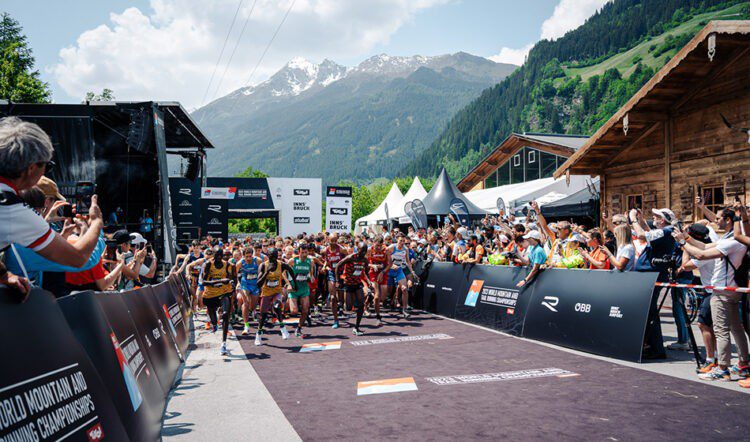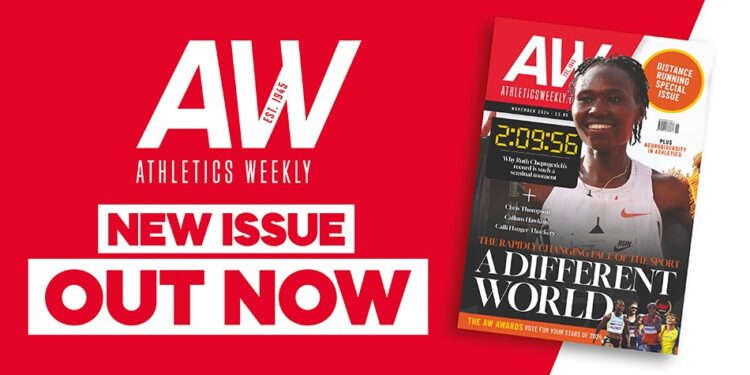Why athletes are starting to pay their way to run for Britain at major events
[ad_1]

As financial pressures bite hard and more “off-track” championships are added to the global calendar, a greater number of athletes looking to compete for Britain will have to dip into their own pockets
Paying your own way to compete for Great Britain. The notion is one that would have seemed almost unthinkable until recently but, whether it is a symptom of the harsh financial realities currently being faced by athletics in the UK or part of a cultural shift already adopted by other nations and other sports, athletes will be dipping into their own pockets when it comes to a number of championship events in 2025.
While events like next month’s European Cross Country Championships will remain fully funded, given that the event has a role in the performance pathway of the country’s distance athletes, those who are planning to target the European and World Road Running Championships, World Mountain and Trail Running Championships or the World 50km and 24-hour Championships next year will have to look elsewhere.
This isn’t entirely new territory. Late last year AW reported on the British teams travelling to those global ultra running championships having to crowdfund to help pay for their costs. While that isn’t necessarily a sustainable avenue, thinking differently will be a necessity.
“It’s not what anybody wants, saying you have to pay to represent Great Britain,” says UKA Endurance Strategy Manager Chris Jones. “The landscape has changed. However, as custodians of the sport, then we have a responsibility across the whole sport. That’s the challenge.
“If an investor came along, such as a sponsorship, [UKA CEO] Jack Buckner would totally back that area of the sport, but until that financial balance comes into the sport, we’re beholden to UK Sport and that’s the way we have to operate.”
As Jones points out, it’s how some other sports, such as cycling and triathlon, have been operating for some time.
“They actually spell out that [in their policies]: ‘You’ll get this, this and this, but the rest of it you’re paying your own way’. In our sport, we’ve probably tried to hang on to things a little bit too long and, culturally, it’s expected that we will continue to fund these areas of sport.”

Jess Bailey (Marco Gulberti)
As part of the UKA selection policies, it will be highlighted exactly what is required from the athletes. For example, the European Road Running Championships document that has already been published highlights the need for a contribution of “no more than £1100” per athlete, with an initial deposit paid on the acceptance of their selection.
While it would be tempting for the athletes to immediately search out cheaper ways to do it themselves – such as low cost flights and accommodation – the policy adds: “The UKA Operations team commits to ensuring the cost reflects a balance between meeting high performance requirements and best value.”
With health and safety at the forefront of his mind, as Jones says it relates to: “How do we look after the environment for athletes and staff? How do you make sure the product is the right product that we want to represent Great Britain?”

World Cross relay delight (Getty)
Jones cites the example of this year’s World Cross Country Championships as indicative of the changing landscape, with some nations deciding not to send teams at all and others adopting the self-funding route.
“I think it was the first time that nations like Germany and Italy didn’t send teams and then teams from New Zealand and Australia self-funded,” he says. “So it’s not just ourselves. I think it’s across the whole infrastructure of athletics around the world. People are having to make choices now where investment is going. It’s a cultural shift in the UK to see that happen, but it happens in lots of other nations.”
He adds: “I think it is a harsh reality [of the financial situation], but I don’t think it is just that. With World Athletics and European Athletics constantly adding things to the programme it’s putting pressure on areas of the sport. There is an element of financial support at some of those competitions [usually two athletes] but it’s not full team coverage.”

World Cross U20 start (Getty)
The obvious concern is creating a situation of “haves” who are able to pay their way and “have nots” who are left on the sidelines. Measures such as a hardship fund are under consideration but, as Jones says, there are other potential solutions to bridging the financial gap.
“Could those costs be written into a shoe contract?” he says, before adding: “There’s massive opportunity in the commercial area for mountain and trail running, to get a different model into that space.”
There is much to consider and avenues to explore but, for the moment at least, self-funding looks like being part of the new normal.
2025 Championships that will require self-funding
European Running Championships Brussels, April (Anticipated team size: 36 athletes)
European 10,000m Pace, May (8 athletes)
World Mountain and Trail Championships Canfranc, September (40 athletes)
World Road Running Championships San Diego, September (14 athletes)
World 50km Championships TBC (12 athletes)
World 24-hour Championships Albi, October (12 athletes)

» This article first appeared in the November issue of AW magazine. Subscribe to AW magazine here, check out our new podcast here or sign up to our digital archive of back issues from 1945 to the present day here
The post Why athletes are starting to pay their way to run for Britain at major events appeared first on AW.
[ad_2]
Source link
